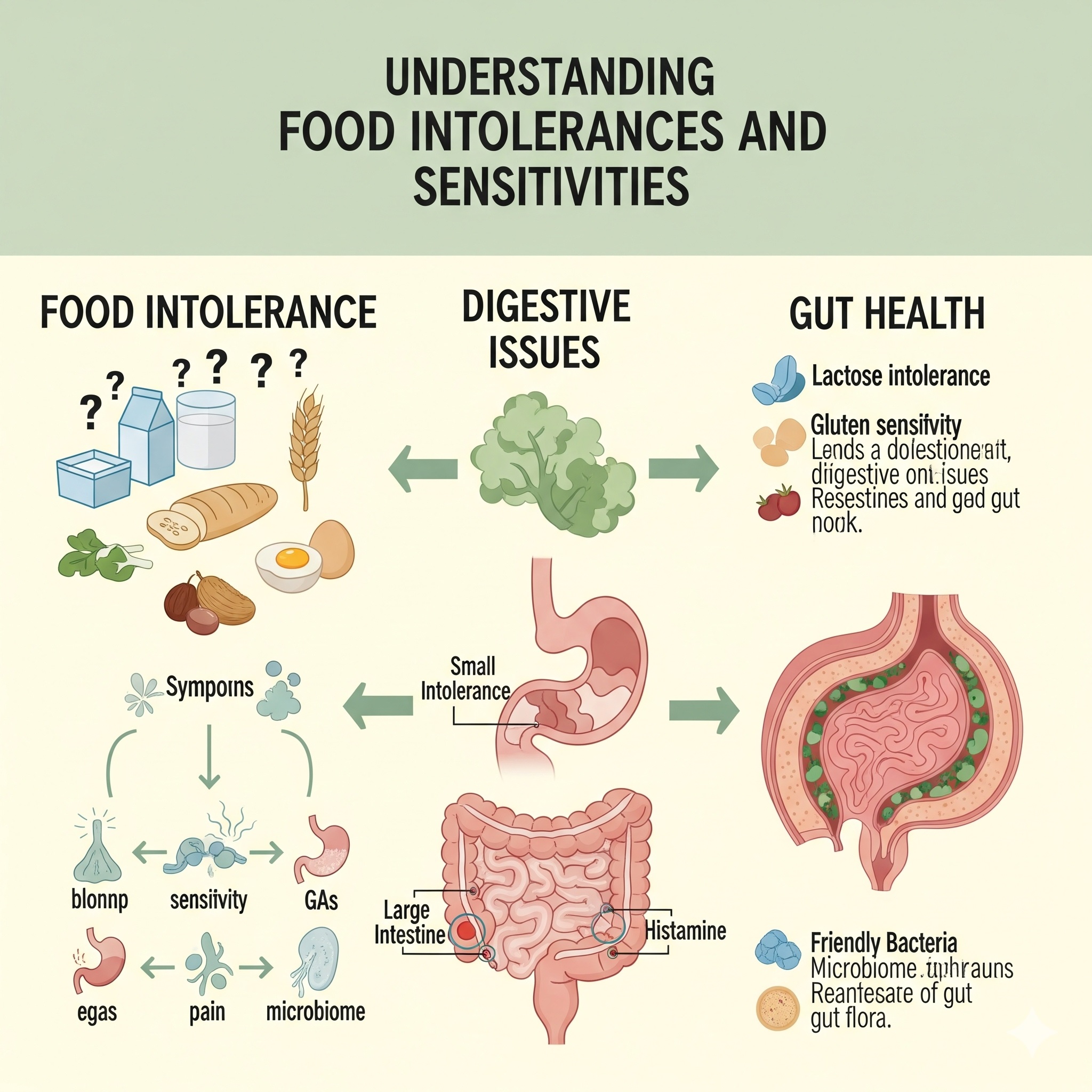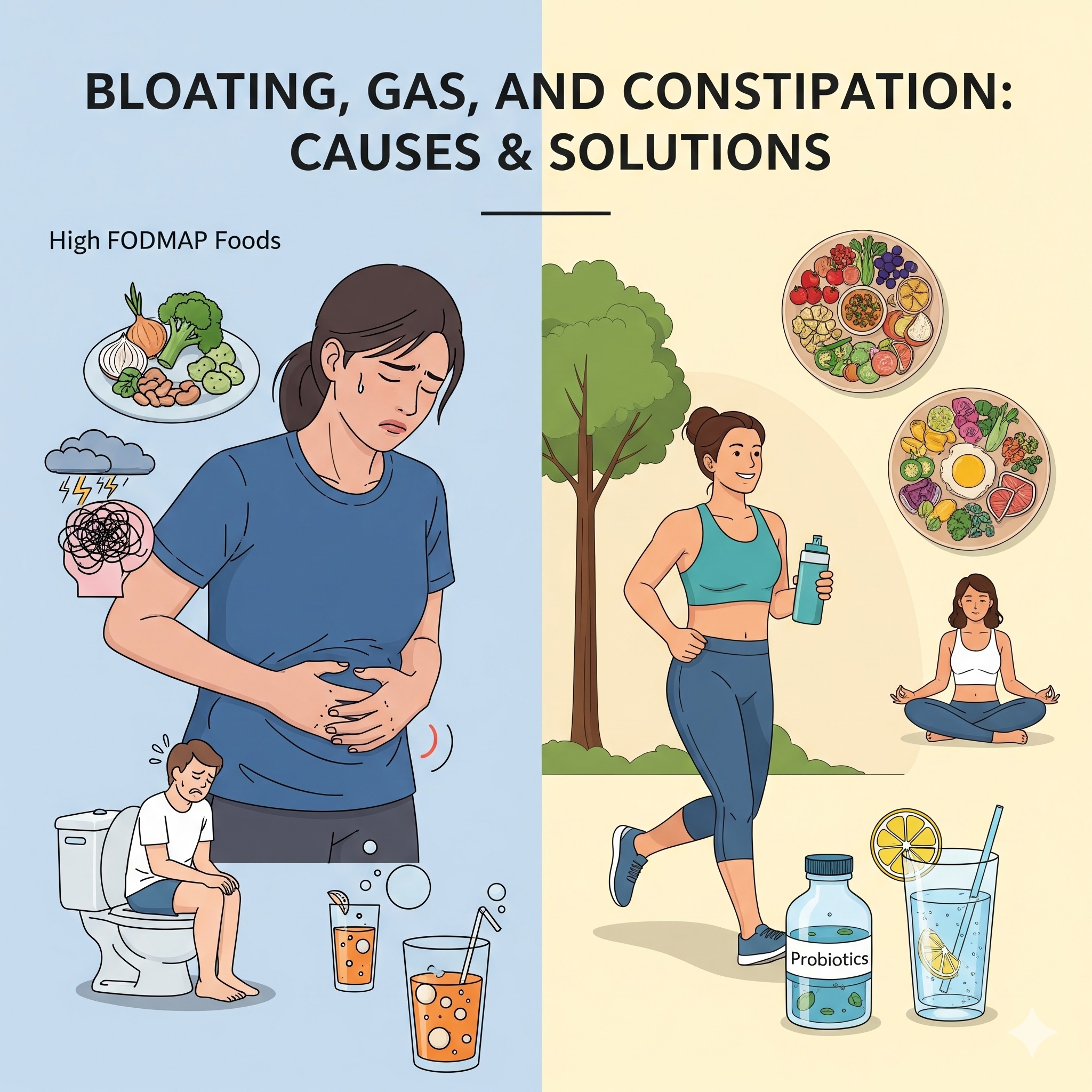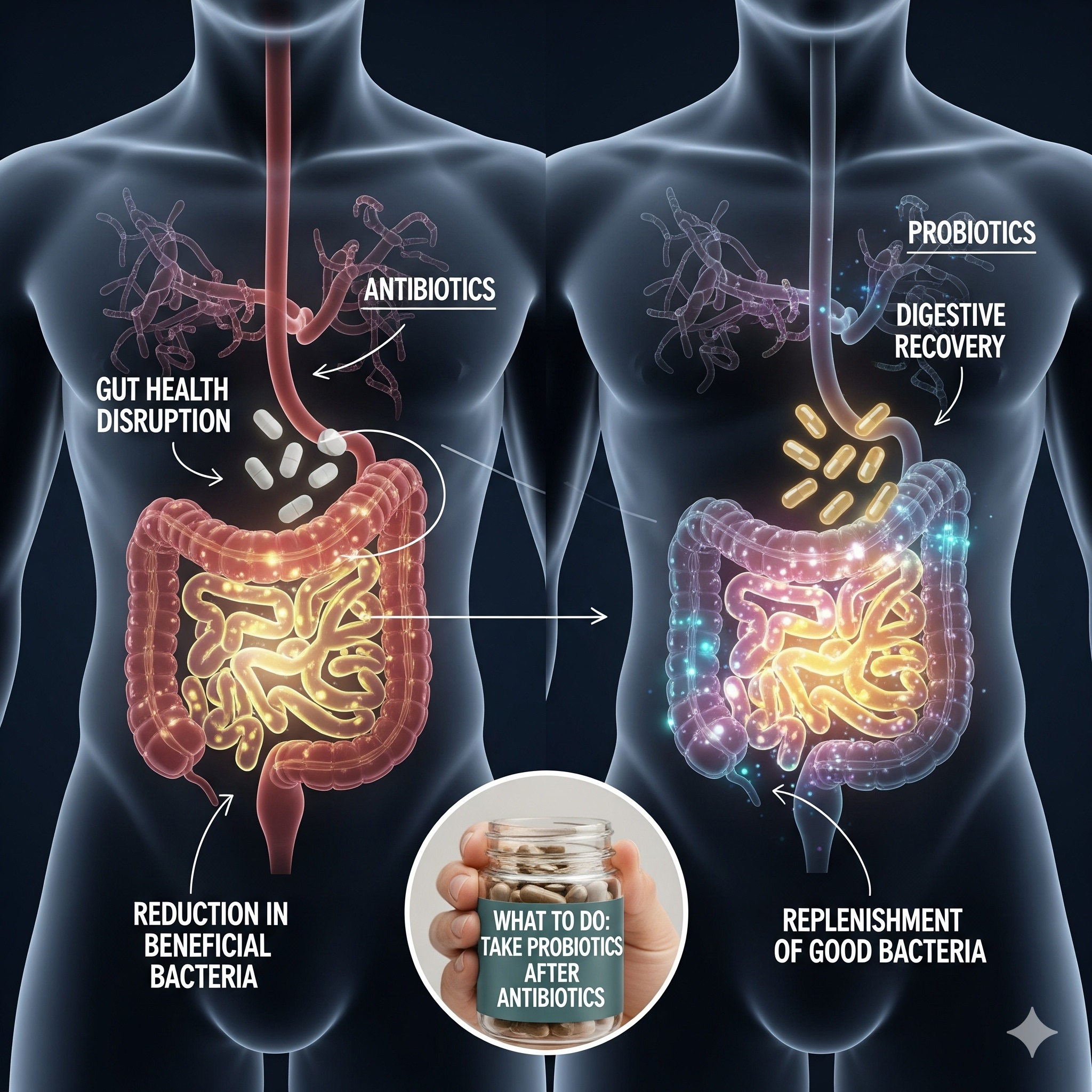In today’s world, more and more people are becoming aware of how food affects their overall well-being. While some individuals thrive on a wide variety of foods, others may notice uncomfortable reactions after eating certain meals. These reactions often raise questions: Am I allergic? Is it a food intolerance? Or maybe just a sensitivity?
The truth is that food intolerance, digestive issues, and gut health are deeply interconnected. Unlike food allergies—which trigger the immune system—intolerances and sensitivities usually affect the digestive system, leading to discomfort that can interfere with daily life. Understanding these conditions is the first step toward relief and long-term wellness.
In this article, we’ll dive into what food intolerances and sensitivities are, their common symptoms, causes, and the best strategies to manage them naturally.
What Are Food Intolerances and Sensitivities?
Food Allergy vs. Food Intolerance vs. Sensitivity
- Food Allergy: An immune system reaction that can be severe or even life-threatening (e.g., peanut or shellfish allergies).
- Food Intolerance: Difficulty digesting a certain food component, usually due to enzyme deficiency or chemical reactions in the gut.
- Food Sensitivity: A broader term often used to describe non-allergic reactions that cause digestive discomfort, bloating, or fatigue after eating certain foods.
👉 The key difference: allergies involve the immune system, while intolerances and sensitivities primarily involve the digestive system.
Common Symptoms of Food Intolerances
Food intolerances can present in a wide range of symptoms. Unlike allergies, which typically occur quickly, intolerance symptoms may appear hours after eating and can be dose-dependent.
Typical symptoms include:
- Bloating and gas
- Abdominal pain or cramping
- Diarrhea or constipation
- Nausea
- Headaches or migraines
- Fatigue or brain fog
- Skin issues (eczema, rashes)
If you frequently notice these symptoms after meals, your digestive system may be reacting to a specific food.
The Most Common Food Intolerances
1. Lactose Intolerance
The most widespread food intolerance. It occurs when the body lacks lactase, the enzyme needed to break down lactose (milk sugar). Symptoms include bloating, diarrhea, and abdominal discomfort after consuming dairy products.
2. Gluten Sensitivity (Non-Celiac)
Some individuals experience digestive issues when eating gluten (a protein found in wheat, barley, and rye) even without having celiac disease. Symptoms can include bloating, fatigue, and abdominal pain.
3. Fructose Malabsorption
Difficulty absorbing fructose (fruit sugar) can cause bloating, diarrhea, and gas. Foods like apples, pears, honey, and high-fructose corn syrup are common triggers.
4. Histamine Intolerance
Histamine is found in aged cheeses, wine, smoked meats, and fermented foods. People with histamine intolerance cannot break it down effectively, leading to headaches, hives, or digestive upset.
5. Food Additive Sensitivities
Certain additives like sulfites, MSG, or artificial sweeteners can cause digestive reactions, headaches, or skin issues in sensitive individuals.
Causes of Food Intolerances
Food intolerances and sensitivities may develop for several reasons:
- Enzyme deficiencies (e.g., lactase deficiency in lactose intolerance).
- Gut microbiome imbalance, where beneficial bacteria are lacking.
- Chronic stress, which impacts digestion and gut barrier function.
- Overconsumption of processed foods that irritate the digestive system.
- Underlying gut conditions, like IBS or leaky gut.
Maintaining gut health plays a central role in reducing the risk and severity of intolerances.
How to Identify Food Intolerances
1. Keep a Food Diary
Track what you eat and note any symptoms that occur within hours or the next day.
2. Elimination Diet
Remove suspected foods for 2–4 weeks, then reintroduce them one at a time while monitoring symptoms.
3. Professional Testing
Some healthcare providers may recommend hydrogen breath tests (for lactose or fructose intolerance) or other diagnostic tools.
4. Work with a Specialist
A nutritionist or gastroenterologist can help identify triggers and create a safe, balanced diet plan.
Natural Ways to Manage Food Intolerances
1. Adjust Your Diet
Avoid or limit trigger foods once identified. Replace them with nutrient-dense alternatives to maintain a balanced diet.
2. Improve Gut Health
A healthy gut can reduce the severity of food sensitivities. Strategies include:
- Eating fiber-rich foods (fruits, vegetables, whole grains).
- Consuming probiotic-rich foods like yogurt, kefir, sauerkraut, or kimchi.
- Taking probiotic supplements for better microbial diversity.
3. Enzyme Supplements
For certain intolerances, digestive enzymes can help (e.g., lactase tablets for lactose intolerance).
4. Stress Management
Stress affects digestion and can worsen food sensitivities. Practices such as yoga, meditation, or deep breathing exercises help restore gut balance.
5. Stay Hydrated
Water aids digestion and reduces symptoms like bloating or constipation.
6. Gradual Reintroduction
In some cases, small amounts of the food may be tolerated after improving gut health. Always proceed carefully.
Long-Term Gut Health Tips
- Eat a varied, whole-food diet to nourish gut bacteria.
- Avoid excessive processed foods and artificial sweeteners.
- Prioritize sleep and regular exercise.
- Limit alcohol and caffeine, which can irritate the gut.
- Consider periodic check-ins with a healthcare provider to monitor digestive health.
When to Seek Medical Help
While food intolerances are uncomfortable, they are usually not life-threatening. However, consult a doctor if you experience:
- Severe abdominal pain
- Rapid or unexplained weight loss
- Blood in stool
- Persistent diarrhea or vomiting
These may signal a more serious digestive condition that requires professional care.




